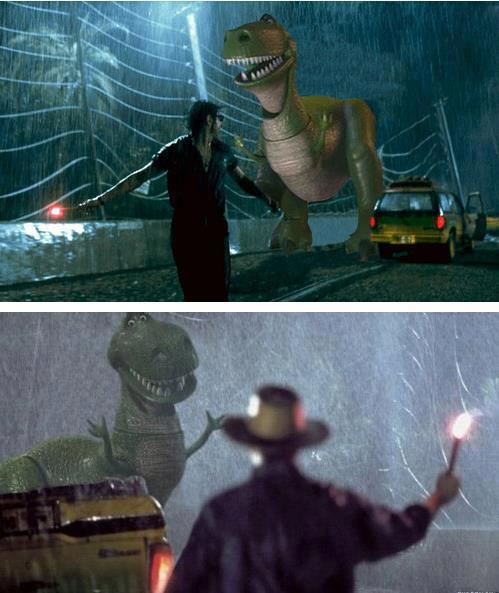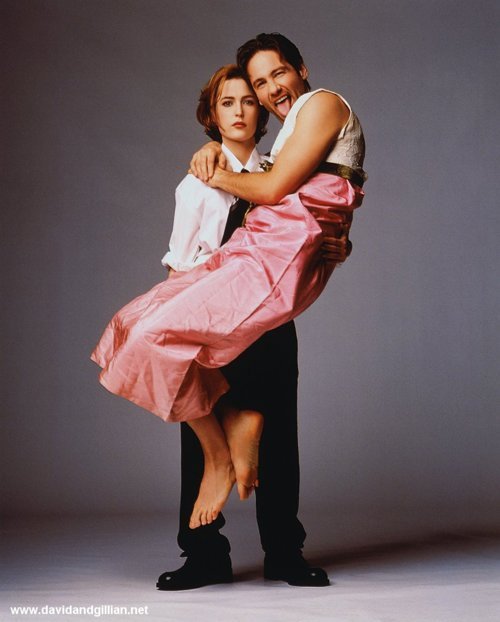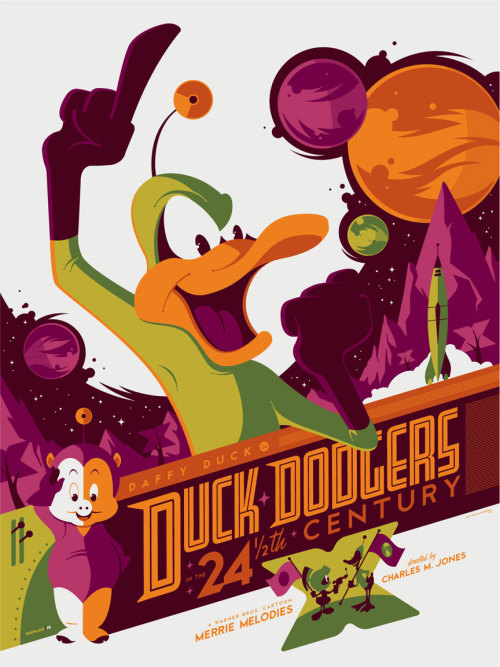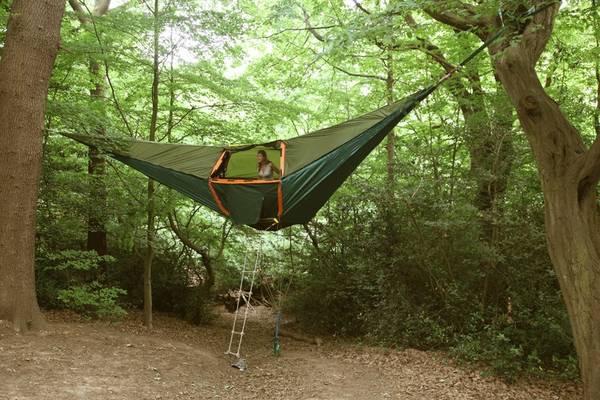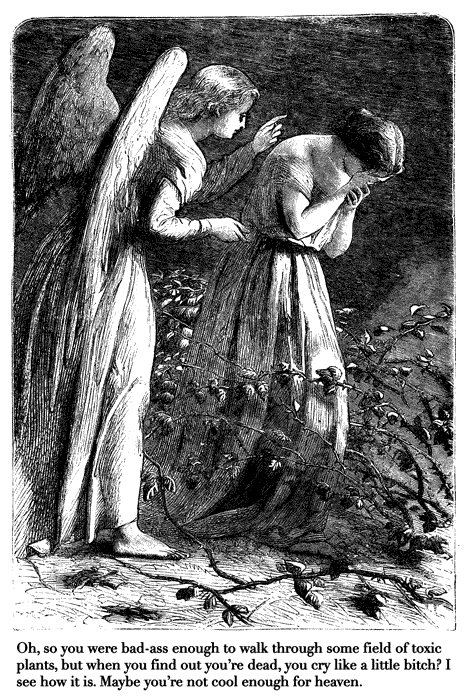Extended Interview with Crocodile Talent Buyers Melissa Darby and Hunter Motto:
Okay, so last week I sat down with Darby and Motto at their office in Belltown. They were gracious enough to share an hour of their time and tons of info about their line of work. I had to squeeze all that into an
800-word piece that would fit in the space we gave it for the physical paper. Here is a transcription of the interview, all 4600 words of it. Yes, it took me forever, and no, an intern did not do it.
Describe your average day.
Darby: First of all, you’re going to get 50-200 e-mails a day, depending on the day and depending on how much work you’ve done the day before. If you get stuck answering e-mails, it’s literally all you’re going do, so I have to say to myself, ‘I’m going to spend x amount of time replying to e-mails. You also want to get to the east coast agents earlier, knowing that they leave the office three hours earlier.
And then later you’ve to be at the shows.
Darby: A huge part of being a successful agent is being able to create, sustain and manage relationships with management and agents etc., but relationships with artists are crucial as well. When you talk about the longevity of a talent buyer, it’s [about] relationships. It’s important to retain buyer history from the beginning. So, let’s say you were the first person to bring them to a market and then you have a good relationship with them or the agent, then retaining that relationship and building it in your market. That’s how you set yourself apart. And it’s got to be pretty organic. But on the flip side, money talks, and as much as you want to think that your history with an artist—if you’ve been with them for a jump—[would always give you] the opportunity to offer again, one day you might wake up and see an artist that you’ve worked with for 10 years all of a sudden on somebody else’s calendar, you never got contacted by the agent, you never heard anything, you never got asked for holds.
Also, people can utilize and use festivals for leverage. That seems like the natural progress in a talent buyer’s career—all of a sudden you’re defined by your venue or your production company and then you’ve got your festival. It’s like your muscle or your meat, the weight you can throw behind things. You know, ‘Give me this show, because maybe one day I’ll put you on my festival.’
And festivals are huge money for acts.
Motto: They are huge money, and even if they’re not, they’re putting you in front of thousands of people you wouldn’t otherwise be in front of. So for smaller artists or bigger artists, festivals are the bread and butter.
Would either of you ever consider having your own festival?
Darby: I’ve had a lot of experience working festivals, whether it be marketing or booking, but as far as having my own festival, I don’t know about that. Booking a venue and still having a social life is enough right now.
Artists and agents are looking to work with people who see the big picture, the long term. There’s the micro part of this job. There’s the day-to-day grind, there’s what you have to do to make sure people are happy, to be hospitable to artists, things you have to do to make a venue run, you know fill in the holes in the calendar, those sort of things, and then there’s the macro, the long term: How are you developing artists? How are you building relationships with people. That’s the challenge every day, I think. It’s balancing those things, balancing your time and your reflection. This industry moves so fast, we don’t have time to really think about what we’re doing often enough.
We go through the whole process of booking the show, then marketing the show, and then having a presence at the show and introducing yourself. I think it has a big impression on an artist or management. As you get older, and you’ve been in the industry for like 20 years it’s hard to work all day and then convince yourself to go to the show, especially if you’re already comfortable at home. But it’s part of the job. Being in the music industry for more than a decade, and being so young, I literally grew up in it. And I’m sure you can relate, there’s just no line between your personal life and your professional life. All those lines get real chalky, and you know, it gets hard. When people say ‘It’s just business.’ How do you differentiate between what is and what isn’t, because this is our lives, this is what we do all day every day, and these are our personal relationships. Your competition is your friends. We compete with people we might eat dinner with one night and hammered with another night, and then go head to head with them the next day. Especially in Seattle, it’s so incestuous.
How did you both get your start in the music industry?
Melissa: I was really active in the ‘90s hardcore scene in Seattle, and the early indie rock scene. The Redmond Firehouse, the RCKNY, the Velvet Elvis, and house shows, that whole circuit and all that. That was what I’d do every single day. Growing up in that, doing a lot of volunteering with that, and then I went into public speaking against the Teen Dance Ordinance and lobbying pretty hard against that when I was a kid. I’ve always just been involved in one way or another with shows, then got more involved with the marketing and being an artist and designing flyers and then going on to manage street teams and handing out flyers and all that and then into actually producing and booking my own events, to you know, doing it all, from the top to the bottom. It was in ’99 I believe, when we were in a TDO meeting with the mayor’s office, and that’s where I met Sam Cheseanu, and he and Mark Matsui had started the Student Hiphop Organization of Washington, a non-profit thing over at the University, and the first show they booked was Mos Def. I was there, and it was amazing. This is at a time where I had to use a fake I.D. all the time to go to hiphop shows, because any national artist that would come through, it was 21 and older, so at that meeting Sam brought up the point that the police and city officials were using the TDO to target minorities, and that resonated with me, and I remember we had talked on the side, and we forged a relationship, and I ended up getting involved with the SHOW directly after that—probably their second show into it when I got on board and started doing marketing and designing flyers and all that. From that spawned Obese Productions in 2003, because I was never a student there. When no one was going to UW anymore, we couldn’t do the SHOW anymore, so created that, which went up until about 2010 when we were doing Reign City. In the interim, that was always on the side. I’ve always worked with the youth. I was a teacher my whole life. I went to school for chemical dependency counseling, and then ended up being the program manager for the Old Redmond Firehouse Teen Center. So—15 years later—that’s what I’d always wanted to do. I always wanted to be Kate Becker when I grew up. Then I went on to be the music program coordinator there, and then I moved on being talent buyer at Nectar.
Motto: I started at [WWU]. As a freshman I did a little festival, and it was a trial by fire working with booking agents and managers and local artists, being super frugal. [laughs] You know, the kind of programming you do on a dime, and after that I got a job at Western. And what was nice and unique about Western’s program at the time was that it had two positions, a coordinator and an assistant coordinator who book all of the shows, including the gallery on campus, movies, the little coffeehouse that does open mics. I did that for three years. The saying, showing up is half the battl—that’s what Bellingham is. If you’re doing anything, you’re doing more than most people. [laughs].
Having spent seven years there I can corroborate.
A lot of people talk about doing stuff, but… So that’s how I got my start, just trying to make something happen. And then I took that down to the bars, so I was booking bars while I was in school. I changed the model at the school from being driven by free events to ticketed events, and then did just a ton of shows, which made my budget go a lot further—it went from a $35,000 budget to a $180,000 budget in ticket revenue. Then I got a job at the Mount Baker Theatre and was helping out with clubs like the Nite Lite for a while until it went under. Tried to make that transition as graceful as possible, and then booked independent shows at the Wild Buffalo, then counseled and advised a little bit, and helped get the Shakedown up and running.
What were some of the hard and fast lessons you guys learned early—ways you got burnt, etc.?
Motto: So many ways. [laughs]
If you were giving advice to someone.
Both Meli and I have lost huge amounts of money on shows.
Darby: Like, buy-a-car-with-cash amounts, in a night.
Motto: Right, like out of your pocket. And it does not feel good. It can be crippling. I wouldn’t even recommend going about it like that. My recommendation is not to go and do what I did, but to find a mentor. Find an internship. Volunteer, you know, and learn how to do it that way. I didn’t do that, and I had to learn lessons the hard way. And part of learning on your own is that you learn bad habits, and then you have to retrain yourself.
Darby: You can learn just as many bad habits by having a mentor, too. I know a lot of people in this industry can account for that. They have a lot of weird idiosyncrasies in the way they communicate that they got from their mentor, because that’s what their mentor’s mentor had taught them. I would say almost the opposite of Hunter. I would say ‘go hard or go home.’ You don’t learn unless you make mistakes. Being a talent buyer is basically being a professional gambler. You can try to watch the trends and see if you can guestimate how many people from this demographic and how many people are going to pay at what price and look around and see if there’s going to be competition that week and you can think about all those factors, which just goes back to being calculated, a very calculated guess. But gambling is ultimately the name of the game. That’s what we do. And you’ve got to put your money where you’re mouth is to get your foot in the door, to get those offers, to get to work with those agents. Ultimately, those losses got you on the radar. I’m not afraid to lose money, but I definitely lose a lot less than I have in the pass. It’s different playing with your own money as an independent promoter than booking for a venue. This money I’m playing with is not my money, and there’s definitely a different frame of mind when you’re thinking about offers. With a venue there’s a lot of factors; you’re not just thinking about yourself.
What are the advantages to having your own promotion company versus while also booking for a club?
Leverage. [For example], Hunter has an entire different market he can offer for in Bellingham. But I also do shows there. The difference is in what you can offer the agent or the artist. It’s the same as developing a relationship. If I’ve been working with an artist from the jump, like say at Nectar, and now they can sell out Wamu Theater—like Wiz Kalifa I did two nights his first time at Nectar—being able to know you can grow with an artist is huge. Being able to know you can go to an agent and say ‘Hey, this is too big for my room? Rad—which one do you want me to make holds for? Having the freedom to offer bigger rooms and not being tied to just booking a 500-capacity room is huge. Because then an agent will know that if they have a good time working with you, then they know they can come to you and work with bigger rooms. You’re not limiting yourself there—you don’t work with an artist until he gets big enough to sell out your room, and then he’s gone forever.
Motto: In my experience, you’re often going to be able to put on better shows than the venue. There are some venues that just don’t put on shows well. They don’t know how to treat artists. It’s either ignorance or not wanting to try, or not having the financial ability to do this kind of thing. They can’t afford to, say, provide hospitality, which should be budgeted, or whatever. And when it’s your own show, you’re doing it because your really want to do it, and you better do it because you love it. Because if you don’t you’re going to burn out.
Darby: Yeah, there’s a high burnout rate.
What other aspects are we neglecting?
Another thing that makes you a good talent buyer is your relationships with your community, your media folks. Being smart about marketing. Because when we book band, obviously the question we’re going to ask ourselves is “How many people are going to pay, and at what price?” But also, how are we going to market this show. What local artists can we put on the bill that are going to work super hard and promote? Can we put a couple of different artists on there that will focus on different demographics, so it’s not just like you’re hammering the same people information, but you’re actually strategically planning. For instance, could you get someone from Tacoma, who’s going to hustle super hard down there. Thinking about things that way when you’re thinking about support, but also thinking about things that way when you’re marketing. Relationships with newspapers, with online media and radio. What sponsorships can we get on board that makes sense for that demographic? You want it to be somewhat reciprocal. You don’t want to be someone who’s just constantly asking for stuff. You want these relationships to benefit both parties. Another thing you don’t want to do is get pigeonholed into one genre. I’ve had to work really hard to get myself out of this box that people have put me in as a ‘hiphop promoter.’ I grew up in the hardcore scene. I’ve got tons of tattoos. You don’t look at me and think ‘That girl’s into hiphop.’ Hiphop is a huge part of my life, but if people think that about you, if agents think that, it can affect you as a talent buyer, because agents aren’t going to come to you for, say, an indie rock show. That, for me professionally, has been a huge challenge. What makes you a good talent buyer, like, say Steven Severin and other people, is to have those relationships. Maybe you don’t know a lot about electronic music. Maybe you’re just a fan. But you have that relationship with a promoter in your market that does know, and you have a open lines of communication, now so you can say things like ‘What do you think about this group? Do you want to work with me on this? Maybe we can make the offer together, or take mutual liability, or maybe I can pay you to market the event.” There are all these different ways you can think about getting your community involved, because you want to protect the integrity of the culture you’re representing too. There’s a little bit of a disconnect with the big, corporate companies. They don’t have that connection to the community and they don’t care. They’re just going to put ads in the Stranger or ads on TV or the radio, and that’s their marketing. They’ve got these gigantic marketing budgets, but at the same time, it’s like, you know $5,000 a spot. Rooms that are maybe 2,000 capacity and lower use grassroots organization and community stuff. You have to know how to reach your demographics, and if not you have to know how to have those relationships with the people who can.
This is all fascinating to me, because I come from the most non-businesslike side of the industry, as I writer. I am jealous of your business acumen.
Motto: And that’s the thing, we’re huge music nerds, but none of us would have gotten where we are without knowing how to use Excel, without knowing how to crunch numbers. Without being able to eye things and know whether it makes sense or it doesn’t. Coming from Bellingham is a perfect example. There are venues up there that just don’t think that way, and they’re not sustainable, and they don’t stick around. Also, you’re running a business that’s basically making people party. We’re in the bar business. We’re selling liquor. We’re selling a good time, so you also have to know how to balance—how to have a good time, but not too much of a good time, so that you can’t be a productive person and you can’t do your work. That’s all the personal stuff that people deal with when they do this kind of work.
When you’re an independent promoter, it’s finances for the most part. It’s money, how to manage your budget, etc. You’re gambling with your own money. When you’re working for a venue—any venue in this town—aside from Vera Project and maybe the STG Theaters, which are a little different because they’re run on a union and a bunch of things, but for the most part running a venue, the backside is not about music. It’s about selling liquor. That’s how we keep our doors open. That’s the biggest challenge for us, because we are music nerds. We both come from places where we got to book our favorite artists, and it was really even just naïve in that we were just so into what we were doing, that when you go to book for a venue—which by the way, I never, ever thought I’d book for a venue—in fact I know I’ve been quoted direct saying that I’d never be a talent buyer for a venue, because I felt like it would be restrictive, like it wouldn’t be fun anymore. But at the same time, growing up in the industry, that was maybe something the younger me would have said. But I realized that the only way you can make a legitimate life in this industry is to get a salary booking shows, and the only way you’re going to get that is by booking for a venue. When we think about offers, not only are we thinking about how many people are going to come, and ticket price, and how we’re going to market it, is there going to be any competition from similar events that week, whether or not the Stranger is going to be able to sponsor it, or maybe they can’t because they’re [sponsoring something else that conflicts], but we also have to think, ‘How much are these people going to drink. And that goes into that long-winded all-ages versus 21 and over argument, because the city has made it so expensive and so difficult for us to do all ages because we’re not selling liquor. So it’s like ‘How do you make that revenue?’ Because you’re not making it on the backend. A common misconception: Let’s say you sell out a show at Showbox. People are going to automatically assume “you must have made ducats—you must be rolling in it.” These people are thinking you just made a killing at this show. But most people don’t understand that the backside finances of an offer—the way it’s built is so complex. And you could have a guarantee, plus the rider, the hospitality rider and the tech rider, all of your marketing expenses, all of your venue expenses, labor, staffing, sound your taxes, your insurance, all of your hard expenses and your variable expenses. We all basically have spread sheets that we’ve personalized for, say, your venue or your company.
So, when you send off this offer, they’re going to look at their guarantee. They’re getting x amount of money no matter what, but then there’s—after all these expenses have been taken off—that chunk of money called ‘profit,’ you’d think that’s what the promoter or venue would make, but no. The industry standard these days is 80-85 percent of overage goes to the artist.
Motto: [There are ways to set up deals that are a little more in your favor], but literally, we’re not making money on ticket sales. You can assume that—80 percent of the time—when you’re going to a show, most of your money is going to the artist and the costs of putting on the show.
Darby: And it makes you feel good about it. A lot of people think promoters are taking advantage of people or getting over on a culture or a community or something, but really they’re not. It’s a huge, huge risk for very little gain. I’ve been hired by some huge companies to help with marketing events, and they basically pay you this huge amount of money to do something that’s just routine to you. So then it gets really hard to go back to booking a venue where you’re like, “So you just released an album, and you want to come to Seattle, and you want me pay you a guarantee, and take all the financial liability for not that much financial gain, so that I can put all of my resources and every relationship that I have into your basket so you can promote yourself and your album? It gets hard sometimes because you’re like ‘I’m paying to promote your album.’ It gets really weird. I’ve really had a hard time with this in past crossroads of my career, where I’m like ‘What the hell am I doing?’
Walk me through booking a show.
Motto: Someone—either you or an artist’s representation, but typically a representative of the artist, depending on how big they are. But somebody reaches out—there’s a communication made, about dates. You put holds on calendars, and then you do this dance about when the date is going to fall in this particular city, and they have to figure out roughly when they’ll be here, and then which of those dates will be in which city depending on the offers they get. You know Vancouver, Seattle, L.A. will all make offers, and they’ll get maybe five offers from each market and the management will sit down with those offers and decide what’s best for the artist.
Darby: But it’s not just different offers from different cities, it’s different offers from within one city. They’re going to put holds on all of the [viable] venues if they’re smart. Agents, if they’re doing their jobs are essentially going to play talent buyers off of each other in order to get what they want.
Motto: Right, fundamentally their main fiduciary duty is to make their artist the most money. So they sit down, decide ‘We’re going to confirm these particular offers in these cities, we’re going to let go of these four others. They confirm their shows in each market. Then we do contracting, then we put the show on sale, and then we start marketing, and then it’s just the grind, you know. Two, three, four months out or even more, up until the show.
Darby: And at that same time, you’re also thinking about support. You’re looking into local support. Once you start working with different agencies or different artists, the bigger they are, the harder they’ll push back hard on not wanting support. So they’ll come with a two-band bill, and that’s all they want. You have to be able to kind of massage that a little bit and be like, say for a Thursday, Friday, or Saturday night, ‘Hey, the bartenders would really appreciate it if we didn’t close at before midnight or say ‘Look, this is the perfect person to open.’ Back to the marketing thing: A lot of people are going to ask for marketing plans—how much money you’re going to be spending on ads. If they feel like a show’s going to sell out in advance and it doesn’t need a whole lot of marketing, they’ll ask you to hold off until they say so. Because some people manage that money. If I’m doing a big show at the Showbox, I’m going to have nothing less than $2,000 budgeted for marketing. Here, for local shows we usually have about $250 for marketing, but for bigger, national shows we’ll have anywhere up to $700 or more, depending on the show. But we think about those things as we make the offers. Then you get the contract and make sure all the financial stuff is right and correct it if it isn’t. Because when you get the artist rider, which includes their hospitality and tech stuff. Like if they have technical needs or a backline. You might have made an offer, and they didn’t tell you that you needed to provide full backline for the band, and then you have to go back and be like “This is $1500 worth of backline that’s gotta come from somewhere, and it’s not coming from my end.” Going over hospitality, you’ve put an offer in there, just so you’re really clear, because they give you this paper that says ‘We want all these things. ‘We want 15 buyouts at $20,’ and we’re not going to do that. We’re able to say ‘You have $250 budgeted for hospitality. Use it however you like.’ And we’ll put a little stamp on there that says, ‘Per budget, must advance x amount.’ Then you’ll go through and figure out what they want in their greenroom and hospitality is huge. When they get there, you want the band to feel good. That’s what’s going to set your venue apart. Making them feel like they have the proper venue representation. I mean, how many band members have gone to a venue and been treated like shit?
Motto: The point of the advance, the whole point of this game, is so much about communication and good or bad you communicate. And the point of the advance is that [both parties are] on the same page. In order to avoid a lot of problems, people being pissed off, etc, you try to sit down on the phone or on e-mail and say ‘Let’s make sure we all know what’s going on with this particular show.’ And you have to do that for every single show.
And typically there’s a person who works for the venue, the production manager, advances every show. And he or she is there to greet them and make sure they’re taken care of. And then it just runs. There are things that can happen during the show, but typically things go pretty smoothly from there on out. If the talent buyer is the professional gambler, the production manager is the professional problem solver.
[
Comment on this story ]
[
Subscribe to the comments on this story ]


